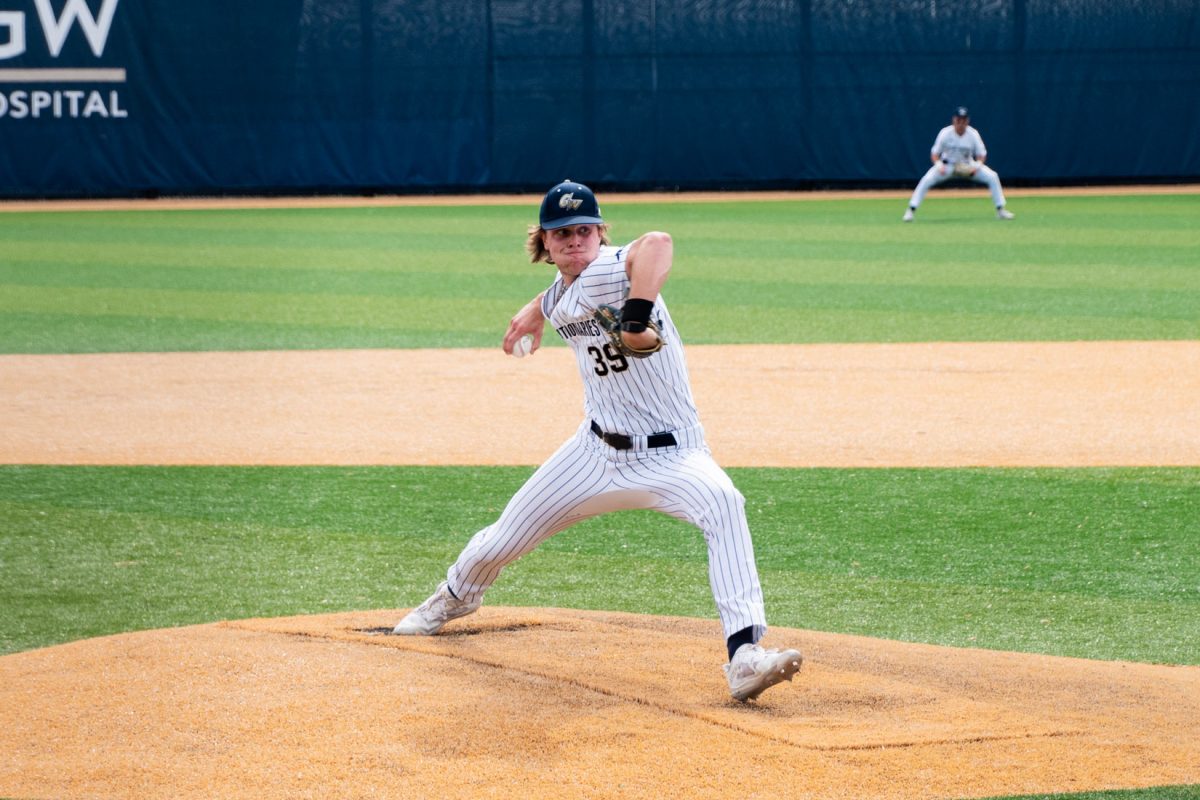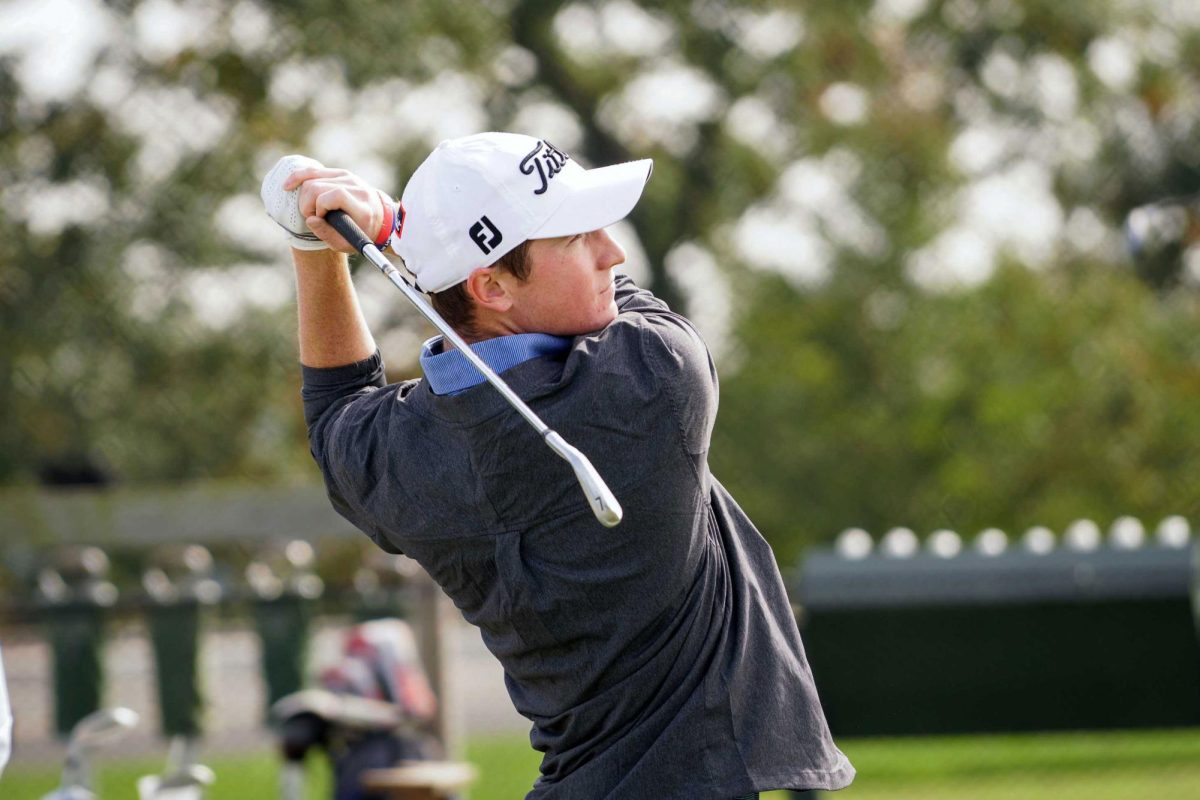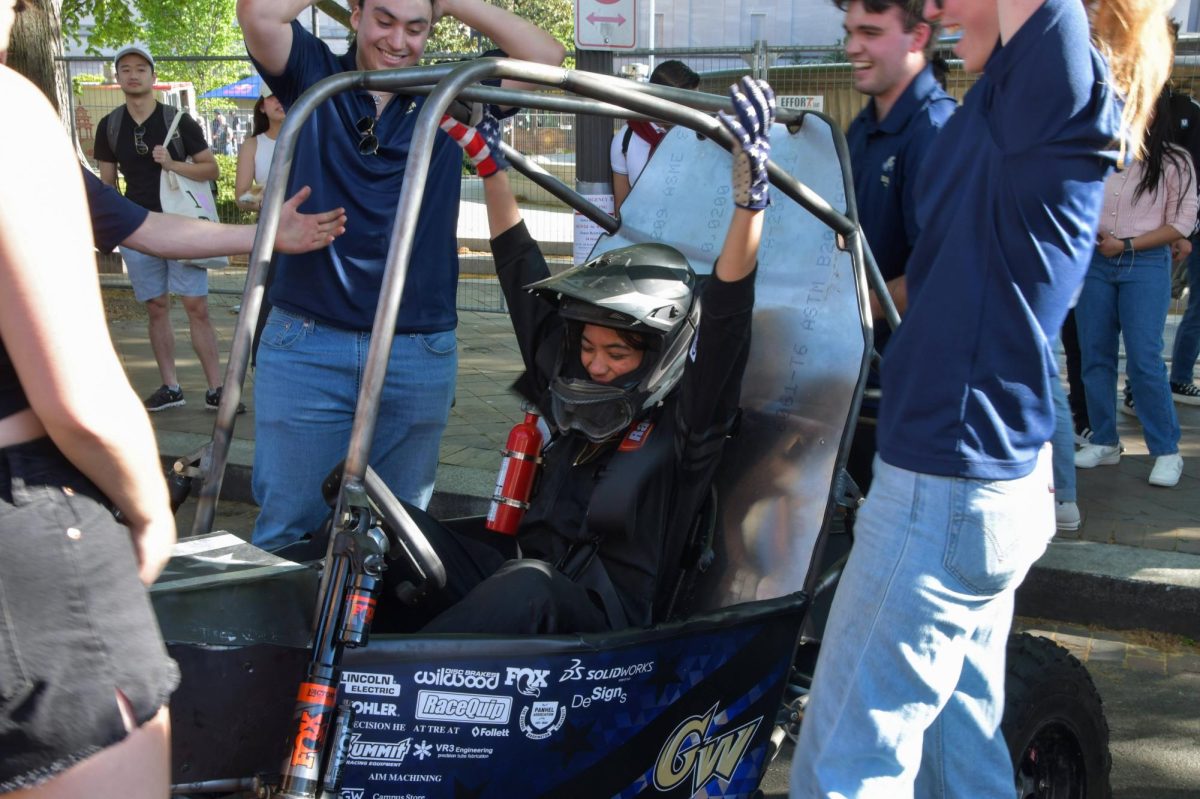Last in a series of articles
When last we left the GW men’s basketball program, things looked bleak. The program had been in a tailspin for about 30 years. (Yeah, you guys sucked.) You can be quiet, University of North Carolina fan, because this story turns into a happy one as we reach present day.
An era of unprecedented success came to a transition point for the program when Mike Jarvis left this summer to coach at St. John’s University. Jarvis restored the winning tradition that had been missing at GW for so long, leading the Colonials to their first-ever postseason victories. The architect of one of the most dramatic turnarounds in collegiate basketball history, he won 152 games in his eight seasons at GW.
Jarvis came in 1990, taking over a program that went 14-17 and won just six of its conference match-ups the previous season. It took him all of three games to top the 1988-’89 win total of one. GW and Jarvis went on to beat Boston University in a double-overtime thriller and lost in the Atlantic 10 Tournament final, GW’s first conference final since 1964. GW played in a national tournament for the first time since John F. Kennedy was president, but its first-ever National Invitational Tournament appearance ended in a loss to the University of South Carolina.
In 1992-’93, the Red Auerbach Colonial Classic began, and behind the play of the Sports Illustrated Freshman of the Year, center Yinka Dare, GW finished 21-9. The season was highlighted by a win over Temple, which broke a 21-game losing streak to the Owls. GW returned to the rankings, but finished out of the Associated Press poll. The Colonials did finish with a No. 21 ranking in the USA Today Coaches’ Poll.
GW entered the NCAA Tournament as a No. 12 seed, and upset No. 5 seed University of New Mexico, securing GW’s first-ever postseason win. GW then knocked off No. 13 seed Southern University and ended up losing in the Sweet Sixteen to AP No. 3, No. 1 seed and eventual finalist Michigan, led by “The Fab Five.”
In 1993-’94, the shot clock shrank to 35 seconds, and GW led the country in field goal percentage. GW beat an 11th-ranked UMass team en route to a return trip to the NCAA Tournament, where as a No. 10 seed, GW upset No. 7 seed University of Alabama at Birmingham. GW then fell to No. 2 seed UConn. In 1994, sophomore Dare became the 14th pick in the first round of the NBA draft, taken by New Jersey.
In 1994-’95, GW beat No. 12 Syracuse in the Preseason NIT, but that paled in comparison with what The GW Hatchet dubbed in large red letters, “The Greatest Game of All Time.” On GW’s Homecoming, after thousands of students waited overnight in the snow, and in front of surprise visitor President Bill Clinton, the Colonials beat No. 1 Massachusetts 78-75. As if that day couldn’t have been more magical, the mesmerizing “Christopher” performed (you might remember him from last year’s Temple game).
“That was unreal,” said loyal GW fan Arthur Kirsch (of the game, not Christopher). “GW has the incredible ability to snatch defeat from the jaws of victory, and they didn’t do it.”
Almost as an afterthought – but it was an even greater accomplishment – GW beat No. 5 UMass the next week in Amherst, Mass., handing the Minutemen their first loss in the Mullins Center. This eventful season ended in a loss to Ohio University in the NIT. That NIT, incidentally, was won by Virginia Tech, one of seven current Atlantic 10 teams to have won an NIT (Yes sir, the A-10 owns the NIT).
In 1995-’96, GW went 21-8, with the highlight of the season being an ESPN-televised win over 26-0, No. 1 UMass at the Mullins Center, handing UMass its second-ever loss at the Mullins Center 86-76. (Do you see another pattern here? GW owns UMass.) GW also beat Temple for the first time at the Smith Center, en route to a perfect home record. The season ended in a first-round NCAA loss to the No. 6 seed University of Iowa. It was a tough loss for the Colonials, who held a 17-point lead with eight minutes remaining before collapsing beneath a 25-6 Iowa run.
In the tradition of GW centers Joe Holup, Mike Brown and Yinka Dare, native Belarussian Alexander Koul excelled in Foggy Bottom. As the University celebrated its 175th anniversary, Sports Illustrated declared GW a “Sweet 16” team in 1996-’97. It was more than a little disappointing when GW finished 15-14 and lost to Michigan State University in the NIT.
Last year, GW turned in a 24-9 record, matching the all-time win total set in 1955. The team beat George Mason, American and Howard universities and the University of Maryland, all but wrapping up the mythical D.C. championship (of course, Georgetown University played none of the D.C. teams). GW received its highest AP ranking (No. 17) since 1956. Although it finished out of the AP poll for the 43rd straight season, GW earned its highest NCAA seed ever (No. 9 – there was no seeding in the 1950s and ’60s) and lost to first-round opponent Oklahoma State University.
The Colonials hold an all-time record of 1,008-867. Their Smith Center record is 214-93, with an 83-17 mark since 1990-’91. Their NCAA record is 3-6, and their NIT record is 0-3. There have been 48 winning seasons, 34 losing, and two seasons that were even in wins and losses. The all-time Atlantic 10 Conference Tournament record is 11-16, and 16 also is the number of NBA players GW has produced. GW has sustained eight straight winning years, which hasn’t been done since before World War II.
So what of the future? In spite of the modest success of these past few years, GW has not yet completely overcome the 30 years it spent destroying any tradition and respect it had earned. Can GW continue to field successful teams, and how important to the University is that anyway?
“I think its very consequential,” GW President Stephen Joel Trachtenberg said. “It’s very good for the stability of the institution and it provides spirit. Having said that, it’s not my goal to turn GW into a basketball power.
“It’s my goal to turn GW into an academic power. What we’ve learned from our friends at Duke and Stanford (universities) is we can be serious about academics and still be serious about intercollegiate athletics.”
Now that Jarvis has left, GW faces the uncertainty that the program no doubt felt when Bill Reinhart left 30 years ago. The difference is GW has a proven winner at the helm in Tom Penders.
“I have been to every level of program and made it better. We’re going to do that here,” said Penders, the 23rd men’s basketball coach. “I don’t worry about building a tradition. What you try to do is the best job you can every day, and that takes care of it.”
Penders may not be trying, but he threatens to spread GW’s success over the reigns of two coaches, a feat GW really has not accomplished since World War II. But some fans fear that GW is not tradition-rich enough to keep a good coach.
“I’m not going anywhere,” Penders said. “If I leave I’m going to the NBA or ESPN. If I could write my own blueprint, I’d coach 10 years at GW and win a national championship or two. But I don’t really look that far in the future. I coach day to day, month to month. I just want to make this place a madhouse – it’s gonna be the `Smith Center Psychos.’ “
Listening to Penders tends to get you a little excited. You start to mentally clear your late-March calendar and forget all about those inconsequential dreams, like playing Georgetown. Wait a second, what about Georgetown?
“They don’t want to play us, I think,” Trachtenberg said. “I think they’ve done a cost-benefit analysis, and they’ve decided they’re better off not playing us.”
“I’ve told CBS and ESPN we’ll play anybody – you arrange it,” Penders said. “I’ll play anybody. I’d love some intersectional games – get on TV. I’m crazy, but I’d rather meet Georgetown in the NCAA Tournament. Every coach knows that what you do in March is what’s important.”
If you listen to Penders, you wonder if he knows where he is. It’s still GW. How could he possibly make everyone think like him?
“All it will take to make us think like him is for him to win 28 or
30 games,” Trachtenberg said.
So, how do you like that, Tar Heel fan? Twenty-eight or 30 games? (Sounds like an off year to me).
Oh yeah? Well, tell me this, my friend. What school beat North Carolina the first six times they played them, and still leads the all-time series? (I give up.)
It’s the George Washington University, of course.







